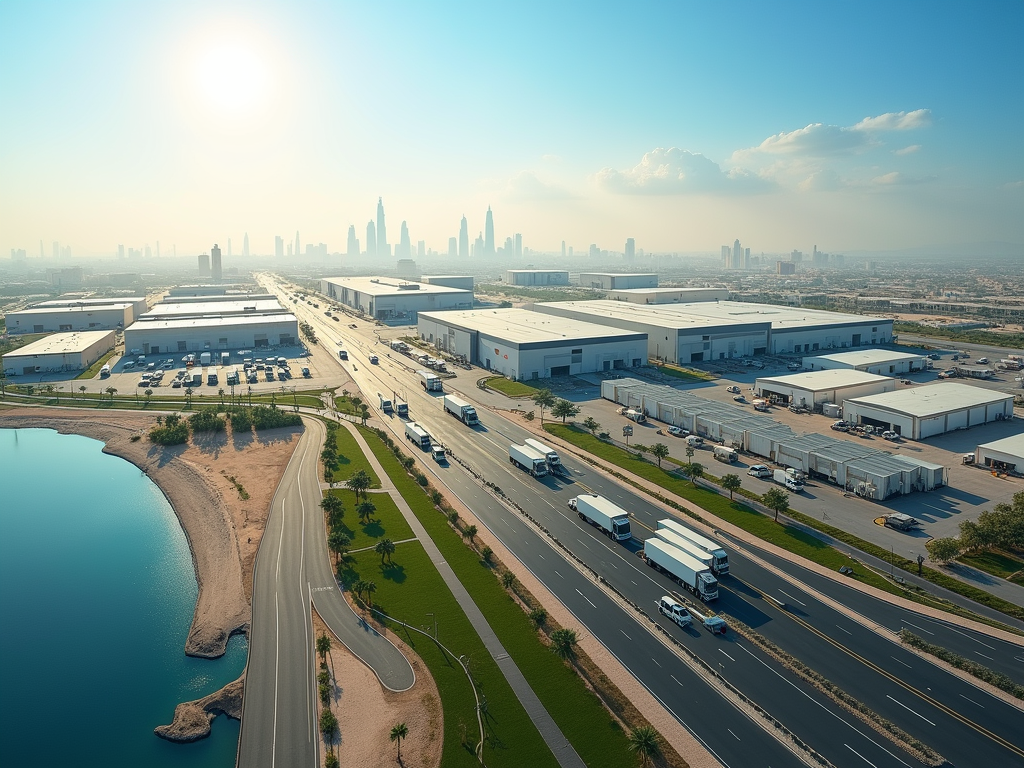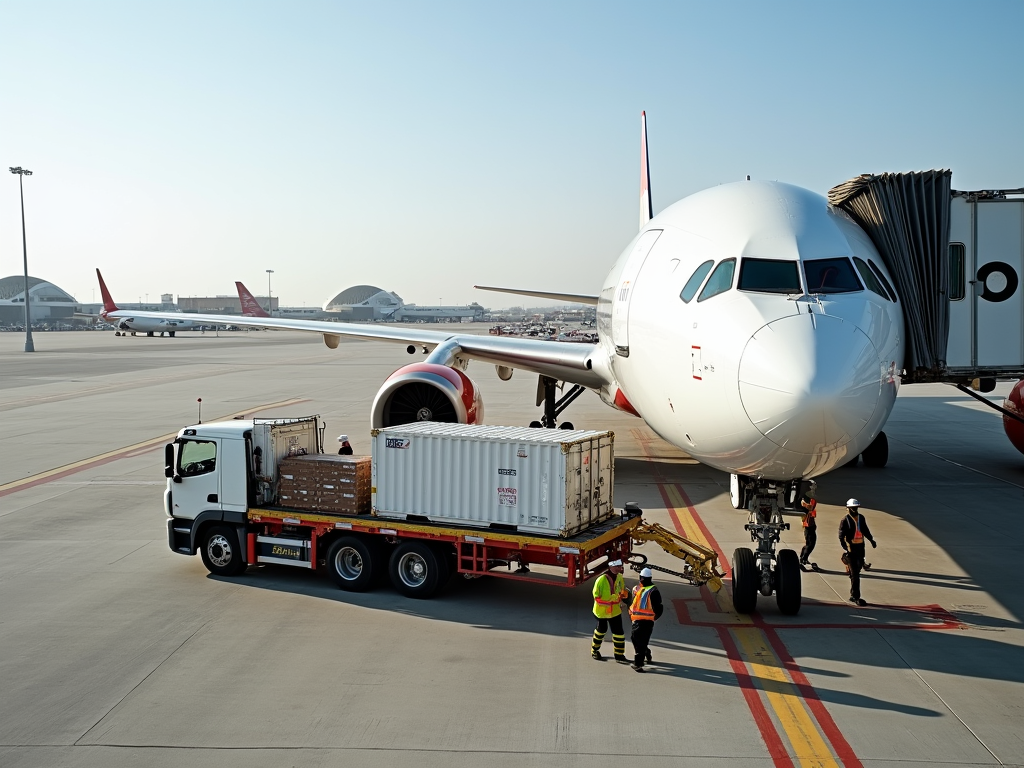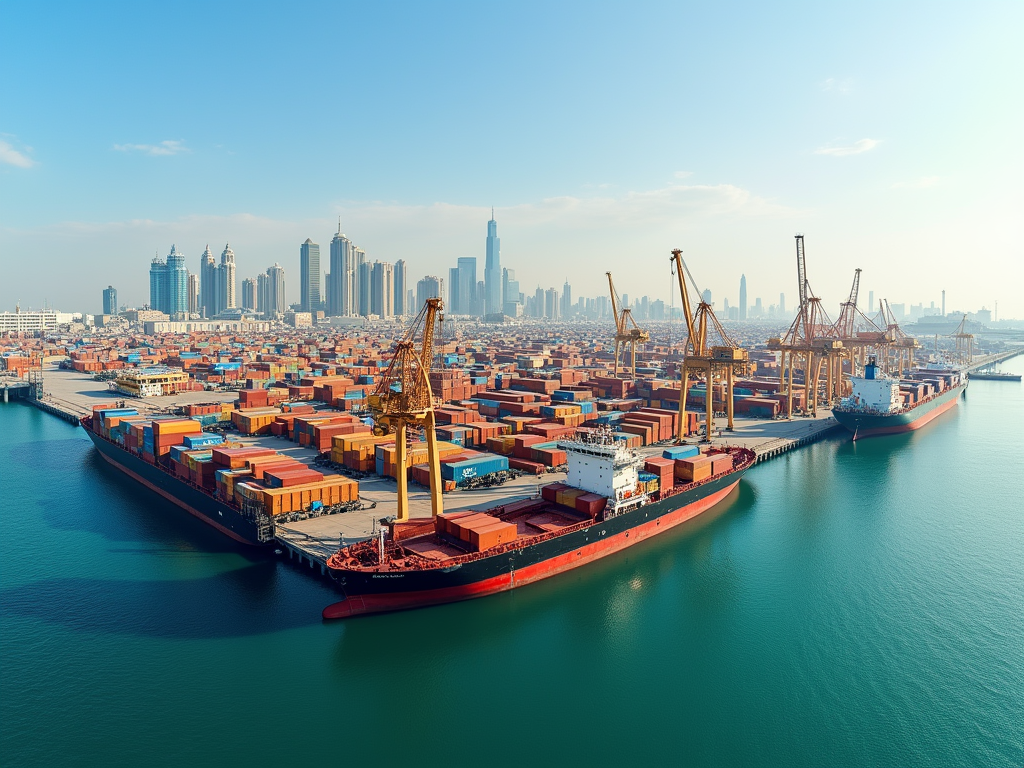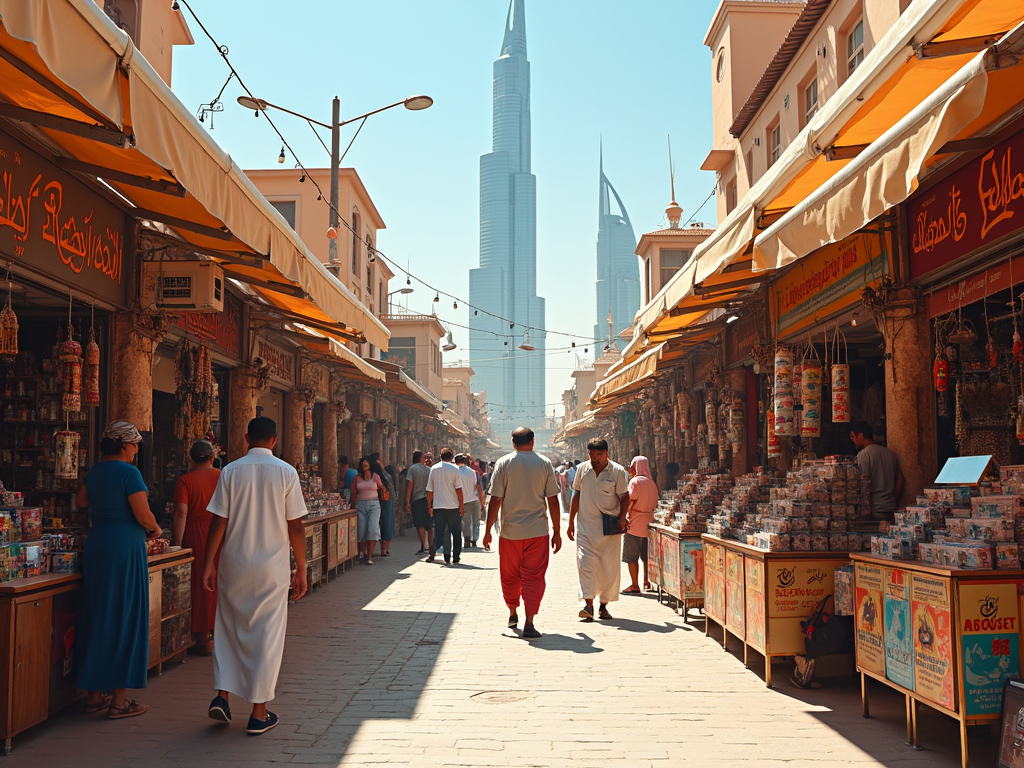Dubai has emerged as a global hub for the logistics and shipping industry, leveraging its strategic geographical location, state-of-the-art infrastructure, and a business-friendly environment. This vibrant city serves as a crucial gateway for trade between the East and West, facilitating the flow of goods and services internationally. The logistics and shipping landscape in Dubai is characterized by excellent connectivity through sea, air, and land, along with a range of specialized services that cater to diverse sectors. As a result, businesses worldwide are increasingly looking to leverage Dubai’s logistics capabilities to enhance their supply chain efficiency. This article will explore the key components of the logistics and shipping industry in Dubai, its advantages, challenges, and future prospects.
Key Components of Dubai’s Logistics Industry

Dubai’s logistics industry is multifaceted, involving various components that work in synergy to ensure seamless supply chain operations. The primary elements include:
- Port Facilities: Dubai boasts world-class port facilities, such as the Jebel Ali Port, which is one of the largest and busiest ports in the Middle East. It accommodates a vast array of container shipping lines and has deep-water access, making it ideal for larger vessels.
- Airport Infrastructure: The Dubai International Airport and the Al Maktoum International Airport serve as important air cargo hubs that facilitate the swift movement of goods globally.
- Warehousing and Distribution: The city offers numerous logistics parks and free zones, providing businesses with ample warehousing options to store goods efficiently.
- Transportation Network: A robust network of roads and highways ensures quick access to and from the port, airport, and other key areas, facilitating smooth transportation of goods.
Dubai’s logistics and shipping industry has several advantages that contribute to its growing status as a global logistics hub. These include:
- Strategic Location: Positioned at the crossroads of Europe, Asia, and Africa, Dubai is ideally situated for international trade, making it a favored stop for shipping routes.
- World-Class Infrastructure: Dubai continuously invests in its infrastructure, which includes state-of-the-art ports, airports, and efficient road systems, ensuring streamlined logistics operations.
- Free Trade Zones: The presence of several free zones allows businesses to operate with minimal bureaucratic hurdles and enjoy tax benefits, which can significantly reduce operational costs.
- Technological Advancements: Adoption of cutting-edge technologies, such as automation, IoT, and AI, enhances efficiency and transparency in logistics operations.
- Strong Economic Growth: Dubai’s diversified economy and commitment to trade ensure a continuous demand for logistics services, driving growth in the industry.
Challenges Facing the Logistics Sector

Despite its advantages, the logistics and shipping industry in Dubai faces several challenges that could impact its growth and efficiency. Key challenges include:
- Increasing Competition: As other regions develop their logistics capabilities, Dubai must maintain its competitive edge by continually evolving its services and infrastructure.
- Regulatory Hurdles: Navigating the complex regulatory landscape can be challenging for companies trying to operate in Dubai’s logistics landscape.
- Shipping Congestion: Increased shipping volumes can lead to congestion at ports and airports, resulting in delays and higher costs for businesses.
- Staffing and Training Issues: A skilled workforce is essential for the logistics sector, and there may be gaps in training and development programs to meet industry demands.
The Future of Logistics and Shipping in Dubai
The future of the logistics and shipping industry in Dubai looks promising, buoyed by ongoing investments in infrastructure and technology. As the global economy continues to recover from the impacts of the pandemic, the demand for logistics services is expected to rise significantly. The following trends are likely to shape the future landscape:
- Sustainability Initiatives: There is a growing emphasis on sustainable practices within the logistics sector, such as reducing carbon footprints through cleaner shipping methods.
- Digital Transformation: Increasing reliance on digital tools and data analytics will optimize supply chain management and improve decision-making processes.
- Expansion of E-commerce: The booming e-commerce sector will drive further development of logistics services tailored to meet last-mile delivery challenges.
- Collaboration and Partnerships: Strategic partnerships among logistics providers, technology firms, and government agencies will enhance supply chain efficiency and service delivery.
Conclusion
In summary, the logistics and shipping industry in Dubai serves as a vital artery for global trade and commerce. With its strategic location, world-class infrastructure, and a favorable business environment, Dubai is well-positioned to maintain its status as a leading logistics hub. While the industry faces challenges such as increasing competition and regulatory complexities, the future holds promising opportunities driven by technological advancements and evolving market demands. As Dubai continues to innovate and adapt, it is poised to solidify its role as a key player in the logistics and shipping sector on the global stage.
Frequently asked questions
1. What makes Dubai a logistics hub?
Dubai is a logistics hub due to its strategic location, advanced infrastructure, and business-friendly policies, making it a vital stop for international shipping routes.
2. What are the main ports in Dubai?
The main ports in Dubai include Jebel Ali Port, Dubai Creek, and Port Rashid, with Jebel Ali being the largest and busiest.
3. How does Dubai’s free zone system benefit logistics companies?
Dubai’s free zones provide logistics companies with tax exemptions, reduced operational costs, and streamlined customs procedures, enabling easier trade operations.
4. What challenges does the logistics industry face in Dubai?
Challenges include increasing competition, regulatory hurdles, shipping congestion, and the need for skilled labor in the industry.
5. What is the future outlook for the logistics industry in Dubai?
The future is promising, with trends focusing on sustainability, digital transformation, e-commerce growth, and strategic partnerships enhancing the logistics landscape.




